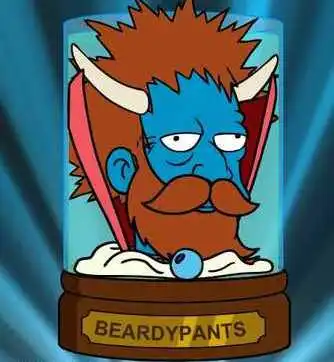Why you should know: The ‘a’ vs ‘an’ conundrum is not about what letter actually begins the word, but instead about how the sound of the word starts.
For example, the ‘h’ in ‘hour’ is silent, so you would say ‘an hour’ and not ‘a hour’. A trickier example is Ukraine: because the ‘U’ is pronounced as ‘You’, and in this case the ‘y’ is a consonant, you would say “a Ukraine” and not “an Ukraine”.
Tip: when in doubt, sound it out(loud).
Thank you for coming to my TED talk.
Really, we’re covering basic grammar now?
Why would you use Ukraine as the example word instead of uniform?
I’m pretty sure I’ve heard “the Ukraine” been pronounced both ways often enough.
I’ve seen a good 15 minute essay-video about this:
TLDW: English speakers increasingly use the consonant versions of “a(n)”, “the” and “to” for anything in casual conversation, just with a glottal stop to separate vowel sounds. This is then found more and more in written and formal language.
Nah, i use whichever i feel like in the moment. Sometimes a double vowel sound sounds better.
Y is a consonant ? what ?
Y can act as a consonant or a vowel, depending on the position in the word.
Definitely a vowel: Baby
Part of a vowel sound: Play
Not a vowel at all: Yes, lawyer
When a Y starts a syllable, it typically doesn’t take a vowel sound, closer to a “soft j” sound.
I guess I never heard the accents that produced “istoric” in reference to the false americanized version of “an Historic event” such as any time Robert Picard (Richard Woolsey) appeared in Stargate
Upper-class British used to ‘drop the h’ on words with a french root to show off their education. Historic had a silent H but hawk did not, for example.
Side note: H has a silent H, it’s “aitch” not “haitch”.
This is the general rule, but you’ll run into problems with words that are pronounced differently with different dialects.
Example:
A herb / An herb
I’d say ‘an herb’ because where I’m from, the h is silent.
But there are many places where it isn’t silent.
A bunch of other comments are using ‘history’ of an example of this… but I’ve not heard of a dialect where the h in history is silent.
That’s not a problem at all. Your example proves the rule: it’s about how the first letter sounds, not what the first letter is.
Agreed, it does prove the rule.
…but that doesn’t change what I said.
If you’re interacting soley through text, you may get into a/an arguments with people who don’t know that different dialects pronounce the same words differently.
I didn’t say ‘this disproves the rule.’
Th’nk ofa som uk accents, lack’n the aytch, comin’ out 'istory & tha like
Well, that does count as a dialect, but I literally would not be able to comprehend it in person.
I have the PNW dialect, aka, the accent that is trained into every newcaster and hollywood actor, because basically every English speaker can understand it without difficulty.
The type O blood of English dialects, if you would.
Is that similar to Transatlantic speak? Transatlantic comes from pronunciation and pitch that carried well on poor radio signals preceeding the digital age. Meanwhile, I swear it was something in the MidAtlantic US that won most neutral English accent… Or most neutral American at the least.
Some modern English words have changed because the leading “n” from the noun migrated over to the article which precedes it, or from the article to the noun.
“Apron” was originally napron, “a napron”. “Nickname” was originally ekename (with the first part coming from the same root as “eke”, as in “eke out a living”). “An ekename” became “a nekename” and then “a nickname”.
And don’t forget the napple!
Ha, that’s really interesting. Swedish has an interesting example of this as well.
Plural you (“y’all”, basically) used to be “i”, but because of an archaic inflection rule, there were often an “n” at the end of a word before “i” (like, “när kommen i?”; “when are y’all coming?”). Because of this, “i” eventually turned into “ni” since the n of the previous word merged with i.
I just learned the bit about an ekename from A Way With Words! Great radio program/podcast.
I’ll chain on: This is why the english language calls the citrus fruit “Orange,” in a round-about way.
The Persians named them Narangs when they acquired them from Asia, which the Spanish turned into “naranja.” But when they crossed the channel “a naranja” became “an aranja” which eventually became “an orange.”
That’s happened in french and Italian too then, “une orange” and “un’arancia”. Wild.
just wait 'til you see what they did with “el lagarto”
Ubisoft needs to hear this.
It hurts my soul everytime I start up Farcry 5 and see “A Ubisoft Game” and not “An Ubisoft Game” on the intro splash screens.
Unless they pronounce it something other than You-Bee-Soft or Ooo-bee-soft. In which case, that would hurt my soul even more.
I don’t know what the official pronunciation is, but I always read it as Ooo-bee-soft.
in french afaik it is pronounced like a french u, or a german ü
I always heard it as if it was an insult. Like they hated their customers.
YOU BE SOFT, BIIIITCH.
OP explains in the description why it starts with A ans not An.
You-Bee-Soft
This is how I’ve always read it, which would make “A You-Bee-Soft Game” correct
This is an great post
Truly an historic effort by OP
I used to hate this but legit like it now.
I’m striking “a” from my vocab. Consonants also get an now. “So i gave him an knuckle sandwich.” beautiful 🤩
An Herculean effort, even.
I so want to downvote, but will refrain. However the gross feeling remains.
I tip my hat to you.
it’s been an honor serving with you
it’s been
ana honor serving with youFTFY
I hope you get loose vowels.
(/j)
It is very basic stuff tho, anyone who learned enough english to read this post would’ve already been taught this. Except for native speakers maybe?
Carefully read the comment you’re replying to
I missed it. Appreciate you.
Cheers
Except for native speakers maybe?
Exactly. This is a less egregious example of the they’re/their dilemma.
Your, you’re
There is / There are (with the wrong pluralisation)
So often…so so often.
Dr Geoff Lindsey has a lot to say about this.
That was fantastic and a must-view for this topic.
This is also true for initialisms, which are acronyms in which each letter is pronounced individually.
“A NASA project” would not become “an NASA project” because nobody pronounces each individual letter of NASA, they just say it as one word.
“An FBI agent” would always be correct, and “a FBI agent” would always be incorrect, because FBI is never pronounced as a word, and each letter is pronounced individually.
I’m not usually that guy but this seems to be the thread for it. Initialisms and acronyms are both types of abbreviation, where you pronounce acronyms as a word (NASA) and initialisms as individual letters (FBI).
I’ve had meetings at work over this. I had to draw a flow chart.NASA vs NSA makes this more apparent too. For example:
A NASA investigationvs
An NSA investigationWait, you mean people don’t call the FBI the fuhbby!?
They will now!
You make a valid point. One initialism/acronym I can think of that can go both ways is SQL (Standard Query Language). You can either pronounce it as Sequel (thus “a sequel query”), or as individual letters (“an S.Q.L. query”).
The vowel sound rule (or a related one) is also used for which vowel sound goes at the end of the definite article “the”, that is, the sound the ‘e’ makes.
Usually the last vowel sound of “the” is a schwa, arguably the most common vowel sound in English, but before another vowel sound, it becomes “ee”, or what other European languages might write “i”.
There might even be an intrusive y (or j as used in Norse and Germanic languages) depending on the speaker. i.e. “The apple” may well be pronounced “thi(y)apple”, and a fellow native speaker wouldn’t notice. “The ball” has the usual schwa. As does “the usual schwa” for that matter.
What about when the next word starts with a schwa? In practice it seems like you change one or the other but not both: “The economy” becomes either “thee uh-conomy” or “tha ee-conomy” but not either combined alternative. Does this rule hold?
I had never heard this spelled out or identified the pattern myself, even though I’d noticed there were differences. Thank you for sharing! This answers questions I didn’t even know I had.
I barely understood this but I’ve also tried to explain this very thing. I believe it was actually on a post about the pronunciation of ‘Data’ because I felt there were differences to each but could not explain why for the life of me.
Trolling is a art
I can’t believe you would make such a simple and obvious mistake. The correct way to say it is “Trolling are a art”, ffs.
No, no, it’s, “Trolling doth be…”












